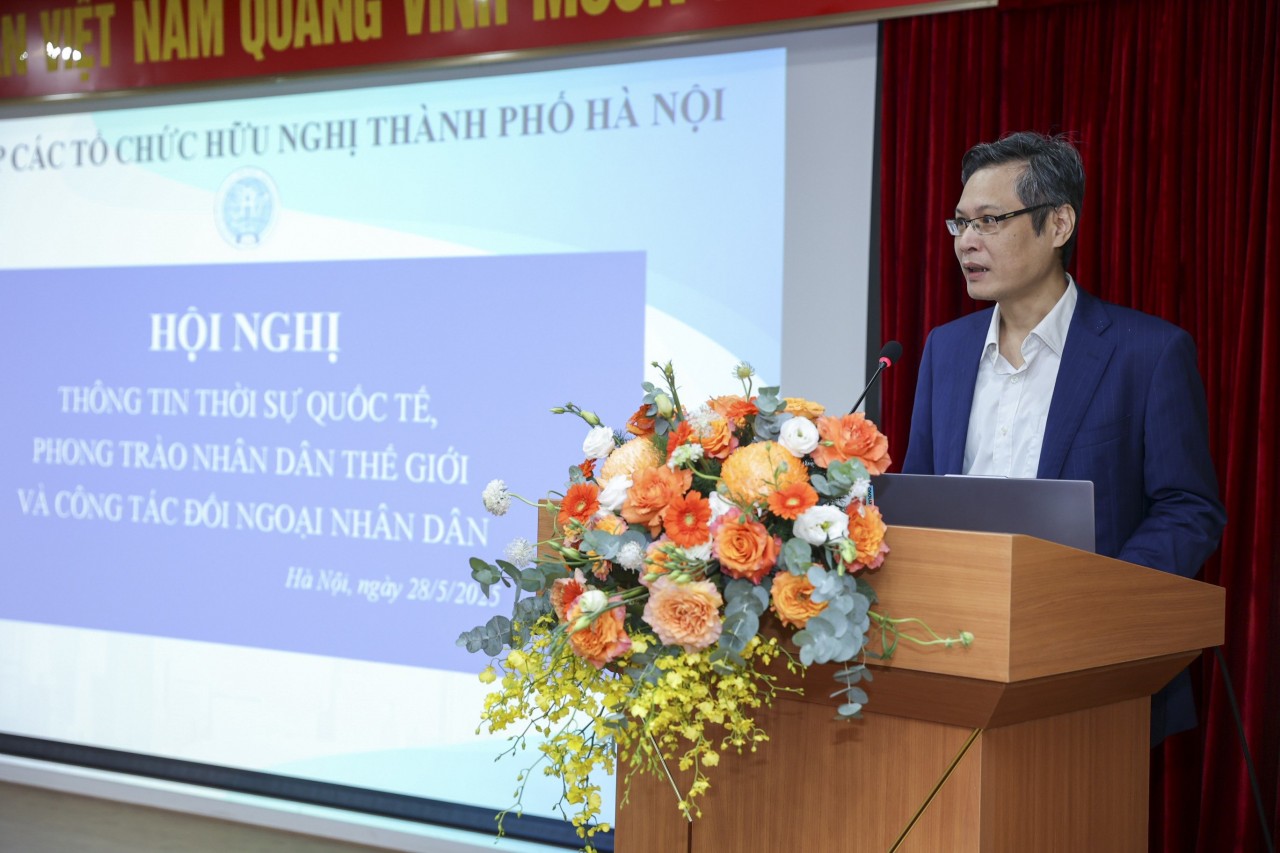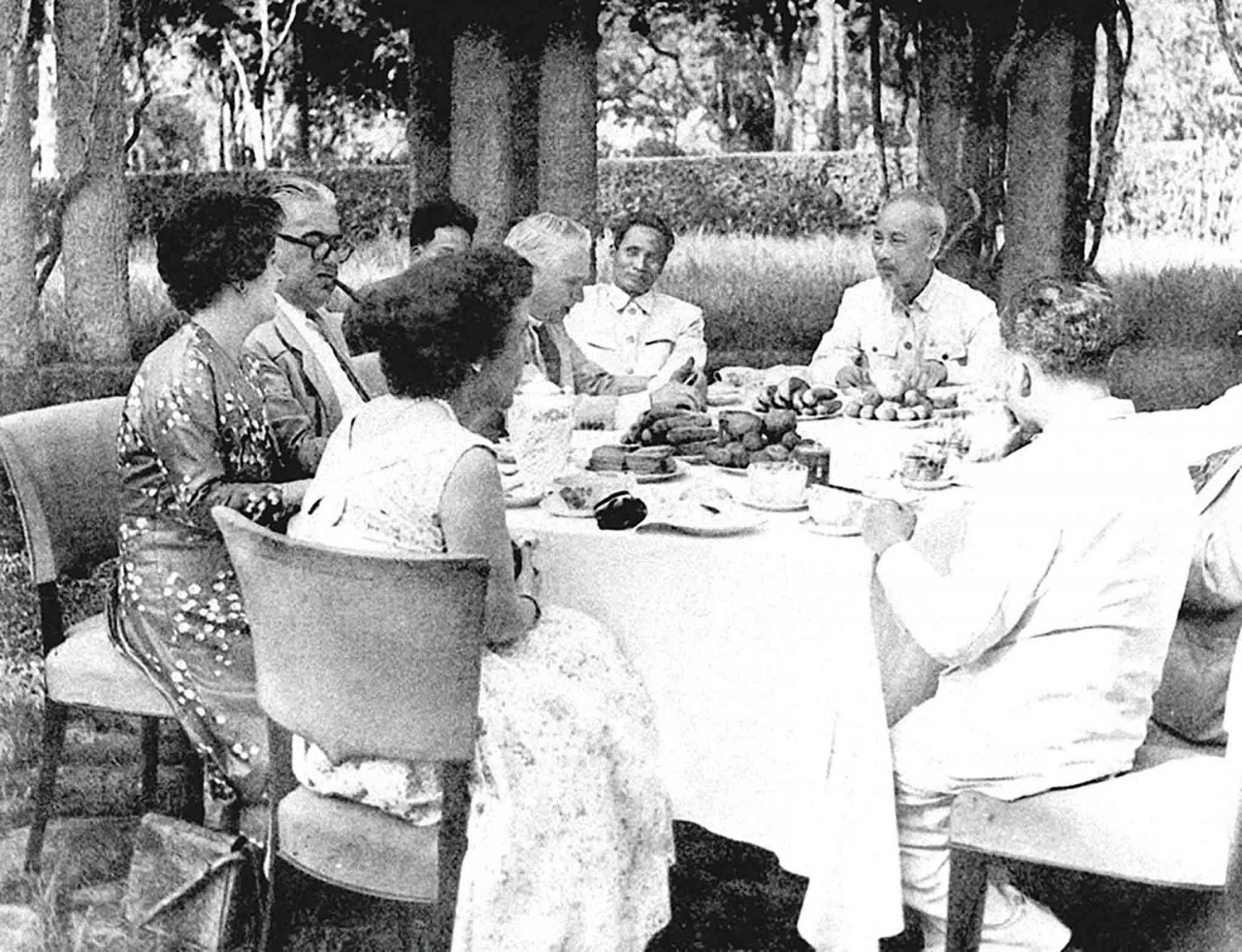Diplomatic Achievements in 2024: Foundations for Vietnam's New Era
| Chinese Expert Hails Vietnamese Economic and Diplomatic Development Achievements in 2024 | |
| Foreign Ambassadors Celebrate Vietnamese Culture Through Ao Dai |
Could you summarize Vietnam’s diplomatic achievements in 2024 and their significance for the country’s progress?
Vietnam maintained its stability and development track and is considered by the international community as one of the "bright spots" in the region. Active diplomatic activities yielded substantial results, contributing to a new height in diplomacy, and creating favorable momentum for the country to enter the era of national advancement.
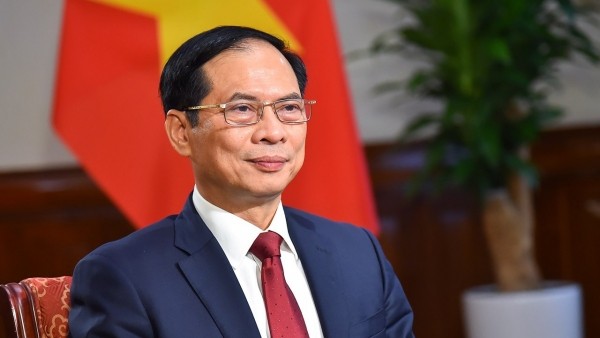 |
| Deputy Prime Minister and Foreign Minister Bui Thanh Son. (Photo: baoquocte) |
Top Vietnamese leaders carried out 59 foreign activities, including 21 visits to countries and participation in multilateral meetings, while hosting 25 foreign delegations. We also intensified the implementation of international agreements and upgraded over 170 cooperation agreements in various fields, particularly those of national interest.
Vietnam upgraded its relationship to a Comprehensive Strategic Partnership with major partners like Australia, France, and Malaysia; a Strategic Partnership with Brazil; and established Comprehensive Partnerships with Mongolia and the UAE. With the establishment of diplomatic relations with Malawi, Vietnam officially has relations with all African countries, bringing the total number of diplomatic partners to 194.
Economic diplomacy has continuously contributed positively to the country's overall economic achievements, despite global economic difficulties. Economic cooperation occupied a significant part of foreign activities, connecting and leveraging partners such as China, the US, Japan, the Republic of Korea, and India in fields such as digital transformation, green transition, semiconductor manufacturing, and AI. We have engaged in new supply chains and expanded export markets through 17 signed FTAs; welcomed investment flows and attracted high-quality FDI and new-generation ODA; and expanded the tourism and labor markets.
In 2024, Vietnam’s trade turnover is expected to reach a new record of over US$800 billion. It remains one of the top FDI recipients globally, with over 15.8 million international visitors in the first 11 months of the year, a 44% increase compared to the same period in 2023.
In response to global changes, defense-security-foreign affairs have formed a tripod, helping to protect sovereignty, territorial integrity, and national security. Vietnam achieved important progress in negotiations with countries, harmonizing unresolved issues, and advancing the formulation of the Code of Conduct in the East Sea in line with international law, including the 1982 UN Convention on the Law of the Sea (UNCLOS 1982).
In addition, Vietnam has continued to assert its role, position, and prestige in multilateral diplomacy. On international platforms such as ASEAN, AIPA, the United Nations, APEC, the Mekong Subregion, G20, G7, BRICS, the Non-Aligned Movement, Francophonie, and OECD, Vietnam has contributed positively and responsibly to various initiatives, receiving international acclaim. Its role has been recognized, especially in the UN Human Rights Council and UNESCO's governance mechanisms.
The country has continuously improved its strength through various diplomatic efforts, such as external information, cultural diplomacy, overseas Vietnamese people, and citizen protection. These efforts have contributed to UNESCO’s recognition of 6 new cultural and heritage titles, bringing the total to 71, which is a valuable resource for sustainable socio-economic and cultural development.
How does multilateral diplomacy contribute to elevating Vietnam’s global position and creating favorable conditions for national development?
Strengthening and elevating multilateral diplomacy is a strategic direction for us. Multilateral institutions and forums play an essential role in addressing security and development issues that concern Vietnam. In a rapidly changing security and development environment, all countries, large and small, are aware of the need to enhance cooperation and connectivity to address urgent global challenges. On this basis, we have shifted from a policy of "participation" to being an "active, responsible member," by putting forward and leading many cooperation initiatives, and proactively participating in shaping global governance, frameworks, and laws. In 2024, multilateral diplomacy made remarkable contributions in important regional and global forums like ASEAN, the UN, the Mekong Subregion, APEC, G20, G7, BRICS, AIPA, and others. Vietnam also successfully assumed positions in key international organizations, such as the UN Human Rights Council and UNESCO.
The international community highly appreciates Vietnam’s capabilities, role, and substantial, responsible contributions to global issues. This sentiment was echoed by UN Secretary-General Antonio Guterres during his meeting with Prime Minister Pham Minh Chinh at the G20 Summit in Brazil, where he described Vietnam as a model of peace and sustainable development.
With its newfound strength and position, Vietnam is well-placed and expected to make greater contributions as a member of the international community. This new stature enables Vietnam, in the coming period, not only to participate in the development and shaping of multilateral institutions and initiatives but also to take on a pivotal and leading role in key strategic issues and mechanisms aligned with national interests.
Could you elaborate on the meaning of Vietnam’s diplomatic approach in this era of national advancement?
As Party General Secretary To Lam stated, Vietnam stands at a historic turning point. Propelling the nation into a new era aligns with both global trends and the practical experiences of pioneering nations. History shows that a country’s ascent in global politics, economics, and civilization requires significant breakthroughs and fundamental qualitative changes.
This new era demands the participation of all sectors, fields, forces, the entire political system, and the whole nation. Past lessons reveal that foreign policy plays a vital role in positioning Vietnam advantageously within the flow of global developments, integrating national strength with international opportunities to support the country’s rise.
First, amidst global interdependence, national stability, and development are inseparable from a conducive regional and international environment. Diplomacy must ensure this stability, allowing Vietnam to embark on its new development phase.
Second, diplomacy serves as a bridge between domestic strengths and external opportunities, harnessing resources such as trade, investment, ODA, and trends like green growth and digital transformation.
Third, with its strengthened economy, security, and foreign relations, Vietnam is well-positioned to contribute more to global peace, development, and settlement of common challenges, thus promoting an international order grounded in fairness, equality, and adherence to international law.
Fourth, Vietnam’s cultural heritage, remarkable achievements in Doi Moi, and foreign policy rooted in peace, friendship, and cooperation enhance its image as a responsible and proactive global player.
Realizing this vision requires a streamlined, efficient, and capable foreign policy apparatus, coupled with policies and resources that empower diplomacy. Building a team of skilled, innovative, and forward-thinking diplomats is equally crucial.
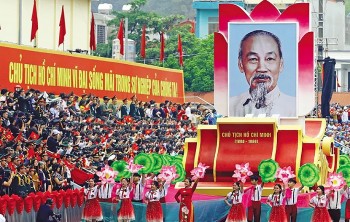 | Paving Way for Vietnam's Rise in New Era (Part 1) Vietnam's journey of Doi Moi, spanning nearly four decades, has been marked by both triumphs and trials. The upcoming commemorations of the Communist Party's founding, ... |
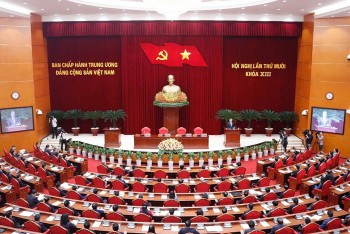 | Basis for Positioning the Target and Historical Opportunity to Bring the Vietnam into New Era General Secretary To Lam, in his recent articles and speeches, emphasized that Vietnam is at a pivotal moment, converging all advantages and strengths to usher ... |
Recommended
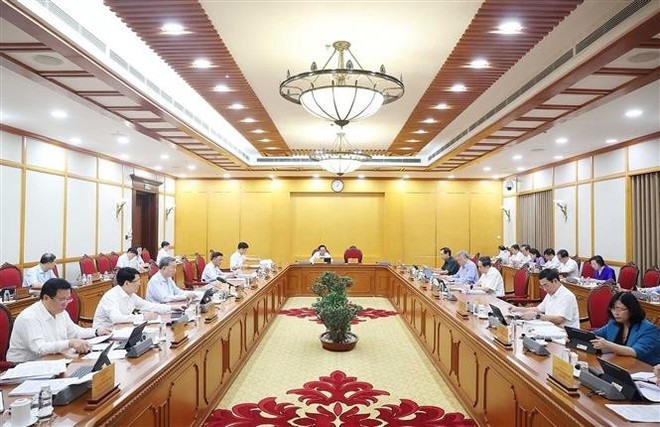 National
National
Vietnam News Today (Jun. 7): Prime Minister works with Estonian firms to accelerate projects in Vietnam
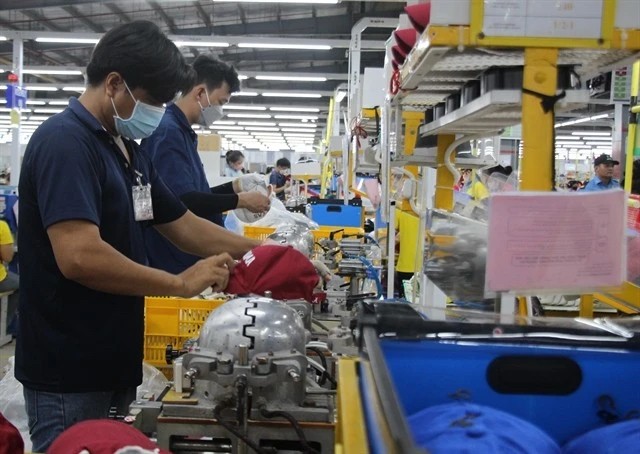 National
National
Vietnam News Today (Jun. 6): Foreign Investment in Vietnam Surges in Five Months
 National
National
Vietnam News Today (Jun. 5): PM sets off for attendance at UNOC 3 in France, official visits to Estonia, Sweden
 National
National
Vietnam News Today (Jun. 4): Vietnam - Promising Candidate for Southeast Asia’s Next Powerhouse
 National
National
Shangri-La Dialogue 22: Vietnam Highlights Some Issues of Ensuring Stability in a Competitive World
 National
National
Vietnam News Today (Jun. 3): PM Pham Minh Chinh to Attend UN Ocean Conference, Visit Estonia, Sweden
 National
National
Vietnam News Today (Jun. 2): Vietnamese Trade Mission Sounds Out Business Opportunities in United States
 National
National

